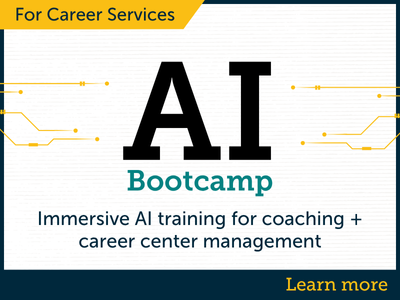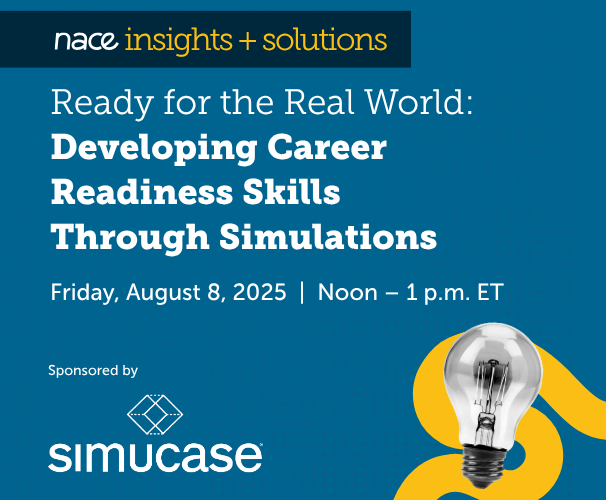NACE Journal, February 2021
This article appeared with “The Value of Cross-Identity Mentorship,” in the February 2021 NACE Journal.
On the value of a relationship based on shared identities, background, or life experience…
Philip Wilkerson: Mentorship when identities align can be very beneficial for both parties involved. When young people see examples of successful adults who look like them, it can be inspiring and help them see their own potential for success in those individuals. As a mentor to many young Black men, I have seen the importance of shared identity firsthand. Connecting with individuals who hold similar identities serves as a visible reminder that people similar to you can achieve and progress. Finding mentors with shared underrepresented identities in predominantly white spaces, in particular, can help combat the impact of imposter syndrome and isolation. Studies have proven the positive impact of shared identity mentorship programs on professional development, educational retention, and well-being. As a higher education professional, I have purposefully joined groups of fellow Black males and gravitated to individuals who are a step higher up on the experience ladder to tap into their guidance and mentorship.
Samara Reynolds: I have benefitted in different chapters of my professional career from seeking out mentors and advisers who have either been in a similar life stage as me at that time, or who were in roles I aspired to achieve. This has often meant engaging with female-identified leaders in career services and college student development, and/or with individuals in my field with children. These individuals have been able to offer valuable perspective and empathy related to management and supervision, work-life balance and integration, career advancement pathways and options, and dealing with imposter syndrome, university politics, and societal expectations of women. Being able to share concerns, questions, fears, wins, hopes, and more with individuals who have faced similar challenges or understood where I may have been coming from based on similar life experiences was incredibly encouraging, reiterating that I was not alone in what I may have been going through at that time. Similarly, I have witnessed the positive impact of identity-based mentorship opportunities offered through institutions and organizations, e.g., Society of Women Engineers, Lavender Law conference/recruiting events for LGBTQIA+ attorneys and law school students, and structured affinity groups and mentor matching at large organizations like Amazon and EY. As students consider career pathways and possibilities, it can be impossible to “be what you cannot see,” so to engage with or have your goals championed by someone who may understand your struggles at a deeper level can make risk-taking in the internship, job, or graduate school application process a bit more feasible.
On the value of a relationship based on different identities, backgrounds, and life experience…
Wilkerson: I mention in my article “Only Black Man in the Room” that, in the higher education space, I am quite often the only Black male in a given meeting, office, or event. However, I do not use this as a reason to avoid seeking mentorship. Because I see the importance of mentorship, I still actively look for people who I admire and want to connect with, based on factors other than race or gender. This often means establishing mentorship relationships with people of different backgrounds. A benefit of this approach is that my worldview is expanded, since I am able to learn from others whose backgrounds differ significantly from mine. My co-author Samara is a white, Jewish, vegan female. I am a Black male who loves a good steak and was raised Catholic. We are, however, both parents of young children and passionate higher education professionals, and we share other things in common outside of our race, gender, or culture. We may have differing identities and life experiences, but we have come to learn immensely from each other and our conversations.
Reynolds: I have often found value in seeking counsel from leaders in the field of career development, even if our identities did not match. Cheerleaders and role models for some of my boldest choices along the way have been male-identified individuals who were many years my senior. Their perspective from engaging over time at a variety of institutions and organizations was often helpful in my ability to step back and see the bigger picture of what was possible for me, and strategic choices I needed to make to get to the next level.
Reflecting upon my mentorship connection with Phil as a Black male and newer professional, it has been fun, interesting, and affirming for both of us to start, sustain, and deepen our mentoring connection over the past two years. We started with shared perspectives at a Virginia Colleges & Employers Association professional development seminar and committed to checking with each other on specific goals thereafter. Adding social media and text connections offered a way tostay in touch and better understand one another’s daily struggles and triumphs, and also where we did have things in common, like both having young families and a passion for social justice. It was Phil’s idea to make our mentorship more official by signing on with NACE, and this has allowed for added accountability and structure—monthly meetings, goal setting that we support one another on, and space to check in on professional life and development, specifically, in between being friends and colleagues day-to-day. I appreciate that Phil brings up questions and perspectives I may not have considered, and that he allows me to root for him and offer counsel in his pursuits, even from afar. We regularly acknowledge our specific differences, and that even though we may not always be able to fully understand each other’s experiences or challenges, we can still hold space for one another and be an unbiased, steady source of encouragement on our respective journeys.







